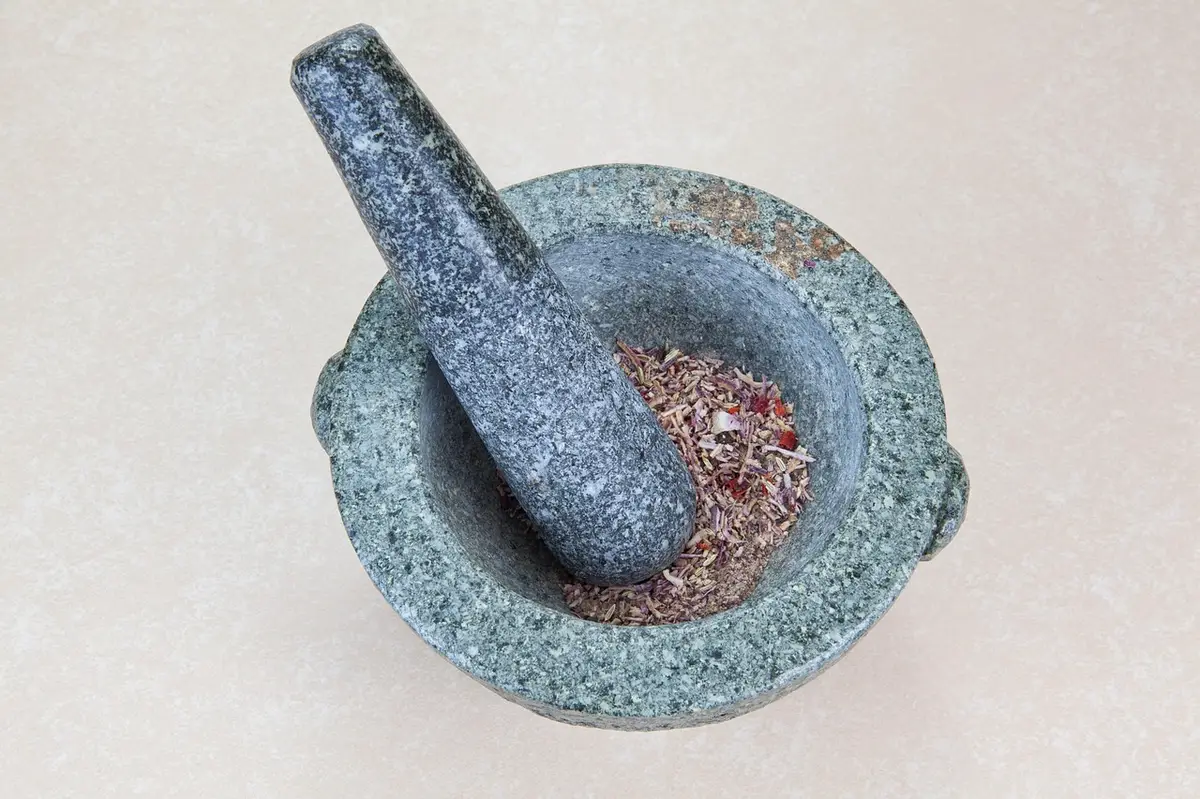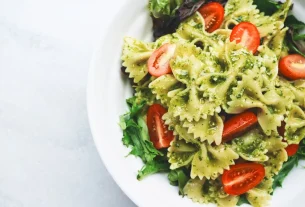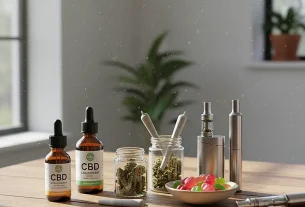Estimated Reading Time: 7 minutes
Estimated Reading Time: 7 minutes
FFeling a bit… off? Bloating, indigestion, a general feeling of sluggishness? You’re not alone.
Modern diets, stress, and a lack of exercise can all wreak havoc on our digestive systems. But there’s good news!
Nature provides a treasure trove of solutions in the form of best herbs and spices for digestion.
These culinary gems not only add flavor to our meals but can also work wonders in soothing and supporting our gut health.
Think of your digestive system as a complex and delicate ecosystem. Just as a garden thrives with the right care, our guts need nurturing to flourish.
Incorporating the best herbs and spices for digestion is like adding the right compost and sunshine, fostering an environment where beneficial bacteria can thrive and food is processed efficiently.
We’ll dive into some of my favorites, the science behind them, and how you can easily integrate them into your daily life. Let’s get started!
So, what exactly makes certain herbs and spices so beneficial for digestion? It often boils down to their unique chemical compounds.
Many contain volatile oils, antioxidants, and enzymes that can stimulate digestive processes, reduce inflammation, and even help to neutralize excess stomach acid.
I’ve personally found a huge difference in my own digestion since I started focusing on incorporating these into my cooking.
It’s been a real game-changer! Now, let’s meet some of the superstars:
Ginger is arguably the king of digestive spices.
Its warming properties and potent anti-inflammatory compounds, like gingerol, make it a fantastic remedy for nausea, motion sickness, and bloating.
I remember a family trip where my nephew was feeling sick on the car ride. A small piece of crystallized ginger saved the day!
You can easily add fresh ginger to smoothies, stir-fries, or even make a soothing ginger tea.
It’s one of the best herbs and spices for digestion for a reason.
Turmeric, with its vibrant color and earthy flavor, contains curcumin, a powerful antioxidant and anti-inflammatory agent.
Curcumin can help soothe the gut lining, reduce inflammation, and may even help with conditions like irritable bowel syndrome (IBS).
I always add turmeric to my morning smoothie (along with a pinch of black pepper to enhance absorption). It’s a simple, daily ritual I wouldn’t trade.
Plus, it gives your food a beautiful hue!
Peppermint is a refreshing herb known for its ability to relax the muscles of the digestive tract, alleviating spasms, and reducing gas.
It’s particularly helpful for those suffering from IBS or other digestive discomforts. A cup of peppermint tea after a heavy meal can work wonders.
Its cooling effect provides instant relief. Be cautious if you have heartburn, as peppermint can sometimes relax the lower esophageal sphincter.
Fennel, with its licorice-like flavor, is a digestive powerhouse. It helps to reduce bloating, gas, and indigestion.
Fennel seeds can be chewed after a meal, added to salads, or brewed into a tea.
I once had a particularly rich meal, and a small handful of fennel seeds made all the difference in my digestion. A true lifesaver!
Both the seeds and the bulb are fantastic; try roasting the bulb for a sweeter, caramelized flavor.
Cardamom, a fragrant spice, has been used for centuries in traditional medicine to aid digestion. It can help reduce gas, bloating, and heartburn.
Add it to coffee, curries, or even baked goods for a delightful flavor and digestive benefit.
Cardamom is one of those spices that subtly improves everything it touches, a beautiful aroma and a subtle complexity of flavor that is very pleasant.
The beauty of the best herbs and spices for digestion is their versatility. They’re not just for tea or curries!
Here are a few creative ways to incorporate them into your diet:
I’ve found that experimenting with these herbs and spices is part of the fun! Don’t be afraid to try new combinations and see what works best for you.
You might be surprised at how much difference a little culinary creativity can make. Think of it like tailoring your diet to your personal needs.
While these herbs and spices are generally safe, it’s important to use them in moderation.
Excessive consumption of some herbs and spices may cause side effects in some individuals, such as heartburn, or interact with certain medications.
Always consult with your doctor or a qualified healthcare professional if you have any concerns, especially if you’re taking medications or have underlying health conditions.
Always do your own research!
Incorporating the best herbs and spices for digestion into your diet is a simple yet powerful way to support your gut health and overall well-being.
From the warming embrace of ginger to the soothing coolness of peppermint, these culinary gems offer a natural and delicious path to digestive harmony.
I’ve shared some of my personal experiences and tips to help you get started. So, go ahead, spice up your life and your gut!
The path to better digestion can be a journey of discovery, experiment with different flavors and combinations.
The more you learn about these herbs and spices, the more ways you can integrate them into your daily routine.
I have found that the more I use these herbs and spices the more I enjoy cooking and eating my meals. And remember, consistency is key.
Small changes, made consistently, can lead to significant improvements in your digestive health.
And that’s it for today’s deep dive. Here’s to a happier, healthier gut!
Frequently Asked Questions
Are these herbs and spices safe for everyone to consume?
Generally, herbs and spices like ginger, turmeric, peppermint, and fennel are considered safe for most people. However, it’s essential to use them in moderation. Some individuals may experience sensitivities or allergic reactions. If you have any health conditions or are taking medications, consult with your doctor before incorporating large amounts of herbs and spices into your diet. For example, those taking blood thinners should be mindful of turmeric’s potential effects. Always do your own research and consider the context of your personal health profile.
How much of these herbs and spices should I consume daily to see a difference?
The optimal amount varies depending on the herb or spice, as well as your individual needs. However, a general guideline is to start small and gradually increase your intake. For example, you could begin with a teaspoon of ground turmeric or a small piece of fresh ginger daily. Listen to your body and pay attention to how you feel. Some people may experience benefits with small amounts, while others may need more. It’s always better to start small, observe how you respond, and then gradually increase your intake. Consistency is important.
Can I use these herbs and spices if I have Irritable Bowel Syndrome (IBS)?
Many of the herbs and spices discussed, such as ginger, turmeric, and peppermint, can be beneficial for individuals with IBS. Ginger and turmeric possess anti-inflammatory properties that may help soothe the gut lining. Peppermint can help relax the muscles of the digestive tract, reducing spasms and pain. However, everyone’s experience with IBS is different. Some people may find that certain herbs or spices trigger symptoms. It is important to introduce them slowly, and monitor your body’s reaction. Fennel is generally well-tolerated. It can be helpful to keep a food diary to identify which spices work best for you and which ones to avoid.
Can these herbs and spices replace medication for digestive issues?
Herbs and spices can be valuable tools in supporting digestive health and may provide relief from mild to moderate symptoms. However, they should not be considered a replacement for prescribed medication. While they can complement medical treatment and improve overall well-being, particularly for those with IBS, consult with your doctor before discontinuing any medications or making significant changes to your treatment plan. The best approach is often a combination of lifestyle adjustments, dietary changes, and, when necessary, medical intervention. The goal should be to create a holistic approach, optimizing both your comfort and your health outcomes.
Are there any specific ways to prepare or consume these herbs and spices for maximum benefit?
Yes, how you prepare and consume these herbs and spices can significantly impact their effectiveness. For example, to enhance the absorption of curcumin from turmeric, pair it with black pepper, which contains piperine. Heat can also boost absorption. When using ginger, consuming it fresh or dried is best, as it provides the most potent compounds. For peppermint, brewing a tea allows you to reap the benefits of its calming effects. With fennel, chewing the seeds after a meal can help with digestion. Experimenting with different methods of preparation, such as infusing oils or using them in teas or soups, can help you find the most enjoyable ways to integrate these spices into your routine.



